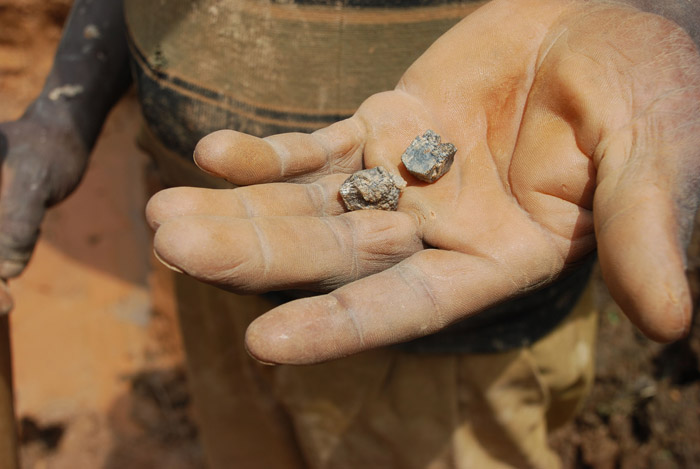
The United Nations Group of Experts on Congo wrote to the U.S. Securities and Exchange Commission on Friday to say, in sum, “Since the signing into law of the Dodd Frank act, a higher proportion then before of tin, tungsten and tantalum mined in the DRC is not funding conflict.” The full letter is posted as a pdf here.
This is a significant statement, coming from an internationally mandated group that has done in-depth research at hundreds of mines across eastern Congo over the past year. The group highlighted several key points:
- The Dodd-Frank bill should issue strong regulations as soon as possible should and not be watered down. From the letter: “Dodd Frank and due diligence is working. Retreat now will confuse all players in the market, unfairly and unwisely diminishing the efforts of those who are implementing due diligence, and playing into the hands of the cynical and those with other agendas who have thus far refused to implement due diligence in the hope that it will simply go away.”
- Legitimate, conflict-free mining has increased significantly in Congo in Maniema and northern Katanga, border provinces to the west and south of the Kivus. This is in direct contrast to those who argue that there is a now a de facto international embargo on Congolese minerals.
- Criminal networks continue to exist in the Congolese army, and the Congolese government must make a better effort to prosecute Congolese army networks trading in conflict minerals, and…
- Companies should source minerals from the Kivus using risk mitigation, a due diligence strategy, and the SEC should clearly lay out the mitigation option. From the letter: “Mitigation allows companies purchasing from mines where FARDC criminal networks are in operation to continue purchasing provided they have put in place mitigation strategies and can prove they are working.”
- Thousands of miners have found work in the neighboring provinces of Maniema and northern Katanga. To further support miners and the surrounding communities, USAID's $20 million fund for mining communities in eastern Congo is a positive step and should be followed up by an initiative to specifically target miners. The point also underscores that the importance of ramping up pressure to replicated the “bag and tag” scheme currently in effect in Katanga and Rwanda.
- The FDLR’s control of mines has decreased over the past year, particularly in tin, tantalum, and tungsten mines.
- Congolese army criminal networks have seen their profits in the 3 Ts fall over the past year. From the letter: “Private sector purchasing power and due diligence implementation is reducing conflict financing, promoting good governance in the DRC mining sector, and preserving access to international markets for impoverished artisanal miners.”
- Gold and jewelry companies must work harder on conflict gold, as gold is increasingly funding armed groups in Congo. The experts specifically cited a need for additional pressure on companies to carry out due diligence on gold. From the letter: “The solution is to continue efforts to implement due diligence in the gold sector. Progress has been made with the major industrial gold producers, but important international markets for gold still pay too little attention to where their product is coming from.”
Photo: Cassiterite in the hand of a miner, North Kivu province (Enough/Laura Heaton)

